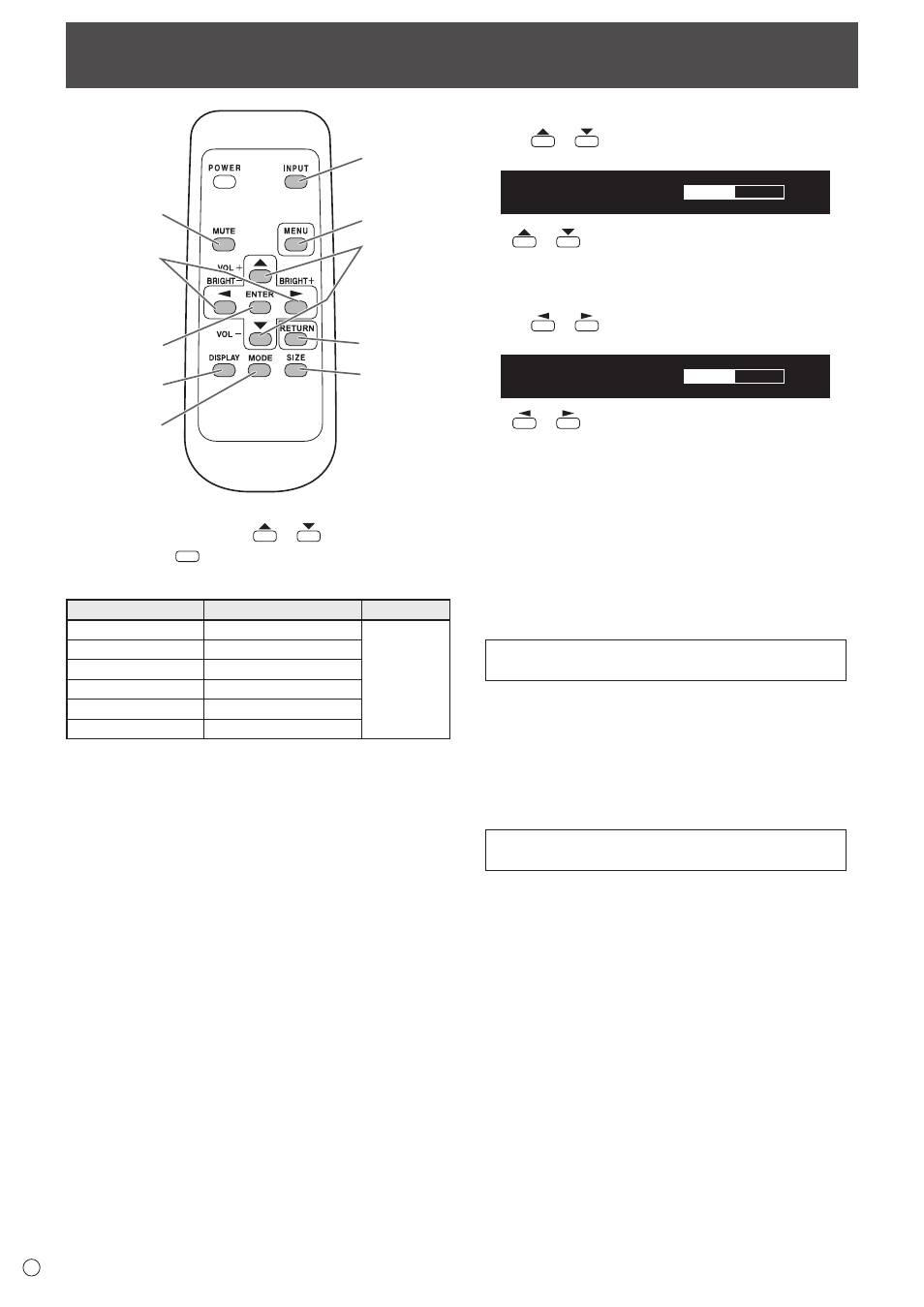Basic operation – Sharp PN-U423 User Manual
Page 18

18
E
Basic Operation
1
2
3
4
5
8
9
10
7
6
1. INPUT (Input mode selection)
The menu is displayed. Press
or
to select the input
mode, and press
ENTER
to enter.
* You can select the input terminal by pressing the input
switch of the monitor.
Input mode
Video
Audio
DVI-D
DVI-D input terminal
*
DisplayPort
DisplayPort input terminal
HDMI
HDMI input terminal
D-SUB
D-sub input terminal
COMPONENT
Component input terminals
VIDEO
Video input terminal
* Select the terminal for AUDIO SELECT which is used for
audio input. (See page 23.)
2. MUTE
Turns off the volume temporarily.
Press the MUTE button again to turn the sound back to the
previous level.
3. MENU
Displays and turns off the menu screen. (see page 20.)
4. VOL +/- (Volume adjustment)
Pressing
or
displays the VOLUME menu when the
menu screen is not displayed.
V O L U M E
15
Press
or
to adjust the volume of the sound.
* If you do not press any buttons for about 5 seconds, the
VOLUME menu automatically disappears.
5. BRIGHT +/- (Brightness adjustment)
Pressing
or
displays the BRIGHT menu when the
menu screen is not displayed.
B R I G H T
15
Press
or
to adjust the brightness.
* If you do not press any buttons for about 5 seconds, the
BRIGHT menu automatically disappears.
6. ENTER
Confirms the setting.
7. RETURN
Returns to the previous screen.
8. SIZE (Screen size selection)
Each time you press this button, the screen size changes in
the following order: (See page 19.)
WIDE → NORMAL → CUSTOM → Dot by Dot →WIDE...
9. DISPLAY
Displays monitor information (Input mode, Audio).
The display disappears automatically after about 5 seconds.
10. MODE (Color mode selection)
Each time you press this button, the color mode changes in
the following order:
STD (Standard) → sRGB → HIGH ILLUMINANCE →
STD...
• HIGH ILLUMINANCE is a display with colors suited to
bright locations.
• sRGB is for DVI-D, DisplayPort, and D-SUB input only.
sRGB is international standard of color representation
specified by IEC (International Electrotechnical
Commission). Color conversion is made in taking account
of liquid crystal’s characteristics and represents color tone
close to its original image.
